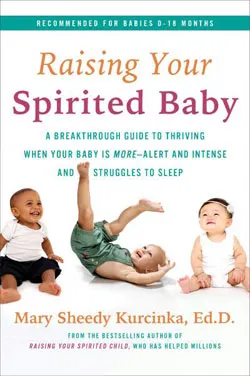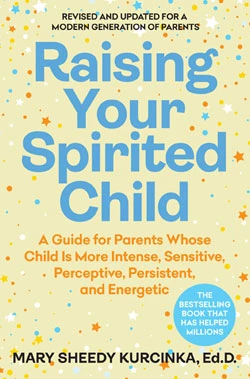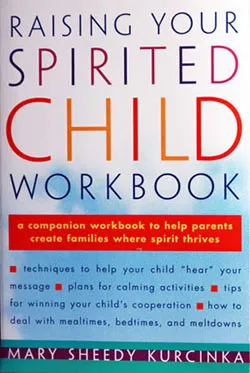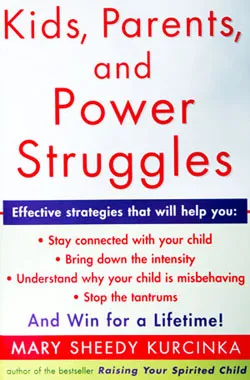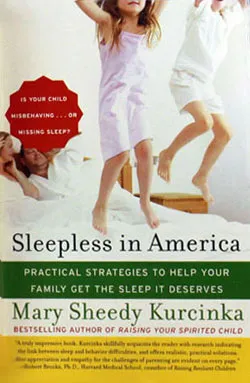What to Do When Parents or Caregivers Styles Clash?

Developed by Mary Sheedy Kurcinka Ed.D. and Lynn Jessen M.A.
Effective Strategies to Become a Parenting Team
“You are too strict!” “You are a pushover!” Whoever would have imagined that two people, whether co-parents, caregivers, grandparents, or other key adults who love the same child, could have such different opinions on how best to respond in any situation. All too often the arguments rage. The great news is when our differences are understood and appreciated, we can become a very effective team.
Research identifies three common styles of responding to children’s behavior. They are authoritarian, permissive and emotion coaching. To demonstrate what they look like, Lynn, and I like to share this scenario in our classes.
Grandpa and grandma were downsizing and decided to donate the toys from their playroom to their granddaughter’s preschool. The director was delighted and welcomed the gift. One of the teachers thanked the little girl for all the toys her grandparents presented to the school. The four-year-old had no idea her grandparents had done this and burst into tears. That night at home she had a three-hour meltdown begging to keep the toys.
How would you respond? When Lynn and I ask this question in our parent classes three responses typically occur.
Authoritarian style
Those individuals who prefer an authoritarian style state that the toys belong to the grandparents who have the right to do whatever they wish with their toys. The child needs to toughen up. This is life.
Reading this response, you may recognize that the authoritarian style users focus on settling limits, establishing clear expectations, and following through. This style is especially effective and necessary in safety situations and where there is no choice, such as, “It’s bedtime.” When caregivers use this style children know what is expected of them, and how their caregivers will respond. There is security in that clarity. Taken to the extreme however, the authoritarian style can be rigid, intimidating, and insensitive to the child’s needs. Any attempt on the child’s part to reason or discuss an issue is considered “back talk.”
Researchers describe the authoritarian style as high structure and low nurture.
Permissive style
Those individuals who prefer a more permissive style insist that the grandparents should not have donated the toys without consulting the child and that the preschool director must immediately return them. They do not want the child to feel sad or disappointed, nor do they wish to say, “no,” to a pleading child.
Scrutinizing this response, you may recognize that the permissive style users are more concerned about a child’s feelings than enforcing strict rules. This style can be very effective in allowing children freedom to explore and to pursue their interests with few limitations. Children are allowed to make their own decisions. However, taken to the extreme, the permissive approach may involve too much talking, overindulgence, and children who escalate in order find out where the limit is.
Researchers describe the permissive style as high nurture and low structure.
Emotion coaching
Those individuals who prefer the emotion coaching style respond that they, like the more authoritarian style, believe the toys are the grandparents to do with as they choose, but like the more permissive style, also are sensitive to the child’s feelings. Their recommendation is that the adults explain to the child that the toys belong to the grandparents who wish to donate them to the school. However, since the child did not have a chance to save her favorites, she could select three toys to keep. The remainder of the toys would then be shared with the children at school. The little girl could inform her peers that her grandparents had donated the toys, and she was sharing them.
When reviewing this response, it is apparent that emotion coaches combine the BEST of BOTH authoritarian and permissive styles. They set and enforce clear limits AND are sensitive and responsive to the child’s feelings.
Researchers describe emotion coaching as high structure AND high nurture.
While styles vary by culture, studies support emotion coaching as the most effective parent style overall. Children raised with this style are more independent, have higher academic scores, a strong sense of self-esteem, better mental health, and competent social skills. Emotion coaching is also the style that Lynn and I recommend and teach.
It is important to know your dominant, most natural style so that you have the language to communicate with others what is most important to you in any given situation. If you lean in the direction of a more authoritarian style, you likely find that establishing structure with clear expectations and rules is most important to you. Sometimes however, you may need to add a little more sensitivity and nurture to your response.
If you lean in the direction of a more permissive style, you probably find it easy to empathize with your child’s feelings but challenging to enforce limits.
When adults do not understand and appreciate the strengths of both the authoritarian and permissive styles they may go to extremes. The individual who prefers an authoritarian style becomes even more authoritarian and rigid believing they need to make up for the permissiveness of the other adult. In response, the permissive adult becomes softer and more permissive concerned that the authoritarian adult is being too harsh. Instead of supporting one another they fight. All too often those arguments breakout in front of the children. The children are confused, the adults are angry.
Which is why it is so important that we, as key caregivers, identify our preferred style, talk about our differences, listen to what is important to one another and come together to become an emotion coaching super team – the most effective parent style.
Next week Lynn and I will show you how to use each parent style to successfully move through those key transitions like getting out the door in the morning, bedtime, or returning home at the end of the day.
Display All Posts
Search by Topic:
Popular Posts:
- When your child yells at you: Expecting and Coaching respectful behavior
- 5 Tips to Stop the 'Strike out Tantrums:' Hitting, Biting, Kicking and Name-calling
- Why is my child suddenly clingy?
- Ten Steps to a Peaceful Bedtime for Your Spirited Child
- When Your Child’s Meltdowns Might Ruin Vacation


